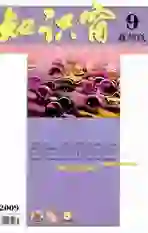小议虚拟语气
2009-04-08李育芳
李育芳
虚拟语气是表示说话人所说的话并不是事实,而是一种假设、愿望、怀疑或推测。虚拟语气历来是英语语法中的一个难点,下面就虚拟语气来做一个归纳。
一、条件状语从句中的虚拟语气
条件状语从句有两种情况:一种是真实条件句,即条件中所谈到的情况完全有可能发生,这时要用陈述语气;另一种是非真实条件句,这时主句和从句的谓语动词都要用虚拟语气。
1.表示与现在事实相反,从句用一般过去时,be的过去式一般用were,主句用would/should/could/might+动原。
如:If the weather were fine today,we would go to shanghai.
2.表示与过去事实相反,从句用过去完成时,主句用would/should/could/might+have+过去分词。
如:If we had known his telephone number,we would have telephoned him yesterday.
3.表示与将来事实相反的从句的谓语动词可以用三种形式,一般过去时,should+动词原形,were+to do sth;主句用should/would/could/might+动词原形。
如:If it rained(should rain/were to rain)tomorrow,our plan would be put off.
4.虚拟语气中的条件状语从句中如果有助动词were、had或should时,可将if去掉,把这三个助动词提前构成倒装句,但主句不能倒装。
如:If I were at school again,I would study harder.
=Were I at school again,I would study harder.
If it should snow tomorrow,all the flowers would die.
=Should it snow tomorrow,all the flowers would die.
If you had come earlier,you would have met the singer.
=Had you come earlier,you would have met the singer.
5.有时常用副词、连词、介词短语but for、without、or、otherwise等来表示非真实的条件句,有时连这些都没有,而隐含在上下文中。
如:①But for your advice,I could not have done it so successfully.
②Without air,there would be no living things.
③I was so busy then,otherwise,I would have told him the answer.
④It rained yesterday,or I would have gone camping.
6.当条件句和主句的时间不一致时,从句根据从句去做,主句根据主句来做。
如:①If I had taken my raincoat with me this morning,I would not be caught in the rain now.
从句指过去,主句指现在。
②If we had not got everything ready by now,We should be having a more terrible time tomorrow.
从句指到现在,主句指将来。
7.由if only引导的句子意思为“要是……就好了”,也是一种虚拟的条件句。
如:①If only I had followed his advice,I would succeed now.
从句指与过去的事实相反。
②If only I were a bird now.
与现在的事实相反。
二、宾语从句中的虚拟语气
1.Wish/would rather+从句,从句要用虚拟语气。
如:①I wish you had not been there when the accident happened.
②I would rather you came tomorrow.
2.在一些表示欲望、请求、建议、命令、要求等主观愿望的动词suggest、order、demand、desire、advise、insist、require、propose等后的宾语从句常用should+动词原形来表示虚拟语气,其中should常可省略。
如:①They insited that he (should) not stay in the hotel.
②I suggest we(should)go shopping together.
由这些动词派生出来的名词如suggestion、order、advice等如接表语从句或同位语从句,表语从句或同位语从句也必须使用snould+动词原形来表示虚拟语气,其中should也可省略。
如:①My suggestion is that we (should) go shopping together and buy a new bed.
②He gave the order that the test (should) be finished before six.
三、as if、as though引导的方式状语从句中的虚拟语气
as if /as though还可用在一些系动词之后引导的表语从句中,如果从句里讲的情况不是事实,要用虚拟语气;如果与事实接近,用陈述语气。
如:①He speaks English so fluently as if he had studied English in England.
②He looks as if he were ill.
③It is so cloudy.It looks as if it is going to rain.(与事实接近)
四、主语从句中的虚拟语气
常用在It is +adj/n+that从句的句型中,that从句用should+动词原形,其中should可以省略。这类形容词或名词通常为:a pity,a shame,strange,no wonder,essential,impossible,important,natural,necessary,possible,probable,urgent等。
如:①It is a great pity that he (should) be so proud of himself.
②it is important that we (should) study English well.
在现代英语中,这种情况也常可不用虚拟语气。
五、在句型It is/was(high/about)time+that从句,从句通常用一般过去时来构成虚拟语气
如:①It is/was high/about time that you stadied hard.
②It is/was time that you went to bed.
但在现代英语中,从句也出现过用should+动词原形来表示虚拟语气的。
(作者单位:江西金溪一中)
